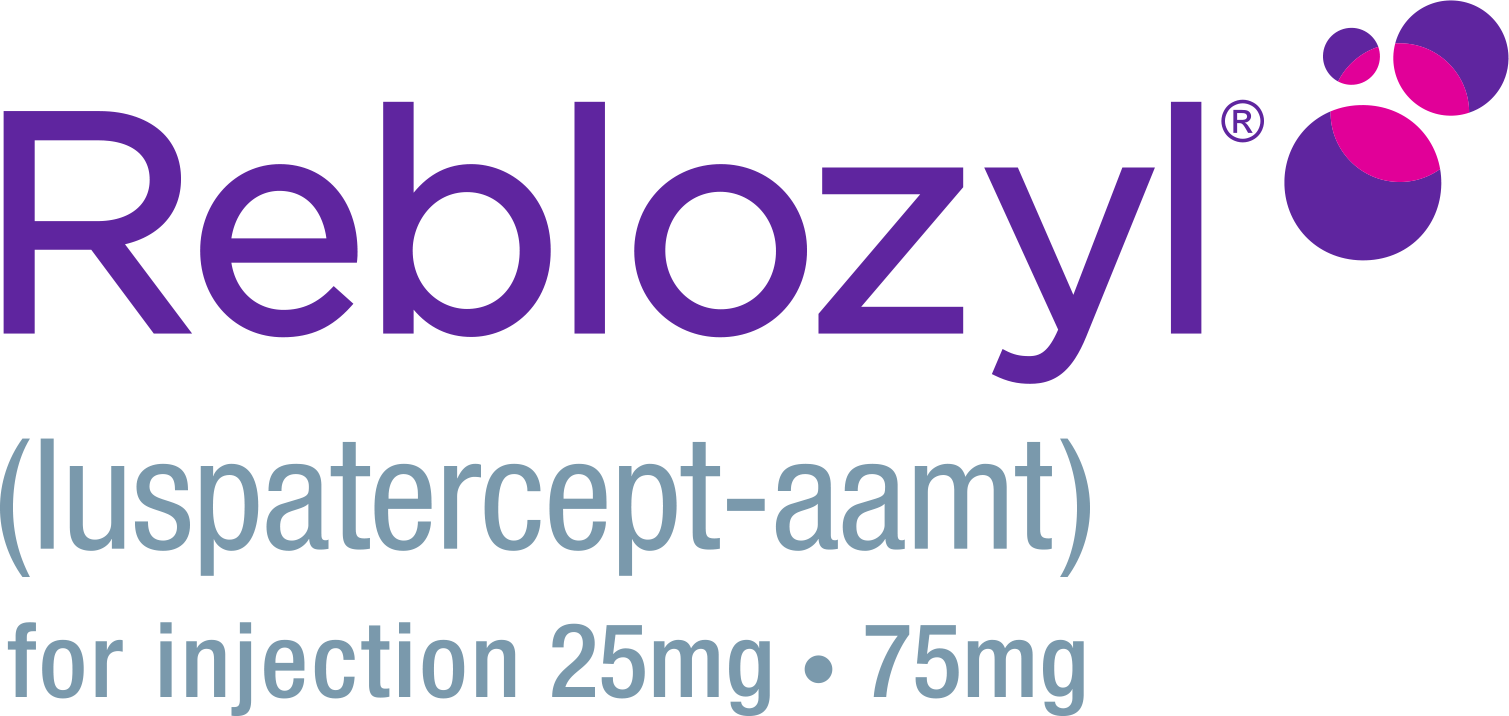What are some common treatments for MDS-related anemia?

Red Blood Cell (RBC) transfusions
RBC transfusions add donated RBCs to your body.
What to know about RBC transfusions:
- Your healthcare provider may recommend treating your anemia with RBC transfusions based on how severe your symptoms are and the amount of hemoglobin (Hgb) in your blood. The amount of Hgb in your blood is sometimes called your “blood count” or “Hgb level”
- How often you’ll need RBC transfusions will depend on your symptoms and your blood count
How RBC transfusions may affect your anemia:
- RBC transfusions help with anemia by giving your body a fresh batch of mature, working RBCs with Hgb to carry the oxygen your cells need
- You may feel relief from some of your anemia symptoms after a transfusion. This relief will likely wear off as time passes between transfusions
What to expect over time with RBC transfusions:
- The number of RBC transfusions you receive may change over time depending on how long it takes for your symptoms to worsen and for your Hgb to drop after each transfusion
- As time passes, many people may need RBC transfusions more often
- When used over time, RBC transfusions can cause problems such as iron overload. Iron overload happens because the transfused RBCs contain iron that your body can’t get rid of on its own, causing iron to build up
- Iron overload can damage organs like the heart and the liver. It is treatable, but make sure to discuss this with your healthcare team so you can monitor for it together

Erythropoiesis-stimulating agents (ESA)
ESAs are man-made hormones (sometimes called “growth factors”). These medicines are given intravenously or by injection that may help raise blood cell counts. A few examples of ESAs are Aranesp® (darbepoetin alfa), Epogen® (epoetin alfa), and Procrit® (epoetin alfa).
What to know about ESAs:
- Many patients start ESA injections as part of an anemia treatment plan that also includes some RBC transfusions
- If you and your healthcare team decide to include an ESA in your treatment plan, you may receive injections every 1-3 weeks
How ESAs may affect your anemia:
- ESAs may help your body produce more immature RBCs, possibly helping with your anemia and decreasing the number of transfusions you need
What to expect over time with ESAs:
- ESAs work well for some of the people who receive them, but their effect can wear off over time
- The majority of people taking ESAs may not respond to them
- Depending on how your body is responding, your healthcare team may change your dose or even stop ESAs so you can try another treatment
What you can do:
After 6-8 weeks of receiving an ESA, talk to your healthcare team about how you’re responding to treatment. Tracking and sharing your symptoms, test results, and any transfusion information with your healthcare team is going to help them understand if you might need to take a different treatment approach.

Erythroid maturation agents (EMAs)
An EMA is a medicine that helps your body’s RBCs mature, which can increase your Hgb levels and may lower your need for transfusions.
What to know about EMAs:
- EMAs can be used as a first-line treatment for MDS-related anemia or after using an ESA
- A goal of using an EMA is to reduce or stop your need for RBC transfusions
- EMAs are given as injections by a healthcare provider once every 3 weeks
What you can do:
- You can track and share your symptoms, test results and any transfusion information with your healthcare team. This will help your healthcare team better understand how well the EMA is working for you.
Talk to your healthcare team about:
- Any changes in your symptoms
- Any changes in the number of transfusions you need
- Any changes in your Hgb levels

Talk to your healthcare team and ask if REBLOZYL is right for you.


